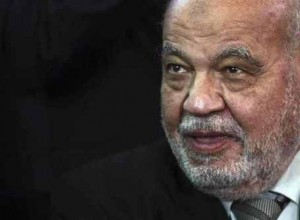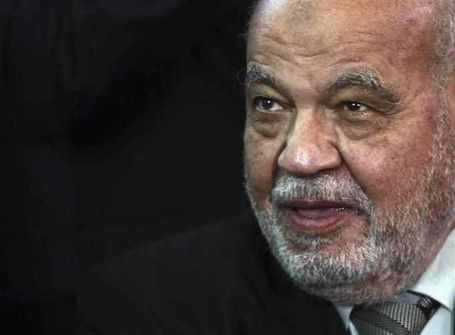
Minister of Justice Ahmed Mekki met with 22 human rights and civil society organisations Tuesday to discuss civic rights and the security situation after the backlash from his new emergency law proposal.
Mekki said President Mohamed Morsy and Cabinet were against releasing the law for societal dialogue at present, to avoid the giving impression that emergency law will be implemented again, but he had insisted because he felt the current law was too flawed and oppressive. As such a good emergency law should be prepared in advance, in case it be needed.
The draft law, made up of ten articles, makes it harder than previously for the President to declare a state of emergency, but gives substantive emergency powers that circumvent freedoms, although not to the extent of former President Hosni Mubarak’s emergency law.
Under the draft law, only the President can declare a state of emergency, and only after consulting the cabinet and getting the approval of Parliament’s lower house, the People’s Assembly’s.
The emergency law would only be in effect for six months and could not be extended unless voted for in a referendum.
The law would give the President the power to order arrests without warrant or due process on the basis of suspicion and the ability to declare curfews and limit freedom of assembly, movement and residence.
In case of war, the President would gain even more emergency powers, such as monitoring all forms of communications, press censorship, revoking gun licences and evacuating or isolating certain areas.
During wartime, the President could also assign anyone to any task he wishes, and could assign himself greater powers should Parliament approve.
Those arrested under emergency laws can have their detention renewed every 15 days up to a total of six months. The President would also have the power to refer to military trial those accused of murder, limiting freedom of work, robbery, thuggery, blocking roads or railways or damaging state institutions. In wartime, the President could expand at will the list of offences subject to military trial.
Mekki also discussed the right to form civil society groups and non-governmental organisation with the groups he met with, with the delegation insisting the Ministry of Justice’s previous habit of curbing the formation of such groups and making it near impossible to receive licences needs to stop. The delegation demanded better and easier incorporation laws and presented their own proposed drafts.
The Justice Minister also announced the formation of a legislative authority within the Ministry of Justice that will be tasked with drafting legislation for President Morsy to pass until new parliamentary elections are held.
Following the dissolution of the People’s Assembly and Morsy’s abrogation of a military constitutional decree that gave the Supreme Council of the Armed Forces legislative power, the President now holds both executive and legislative authority.
He can now draft and sign bills into law, including Mekki’s emergency law or laws drafted by the justice ministry’s new legislative department.




